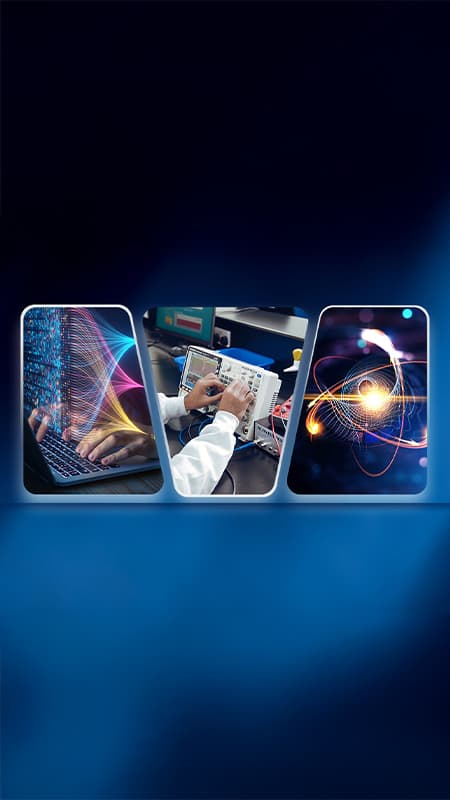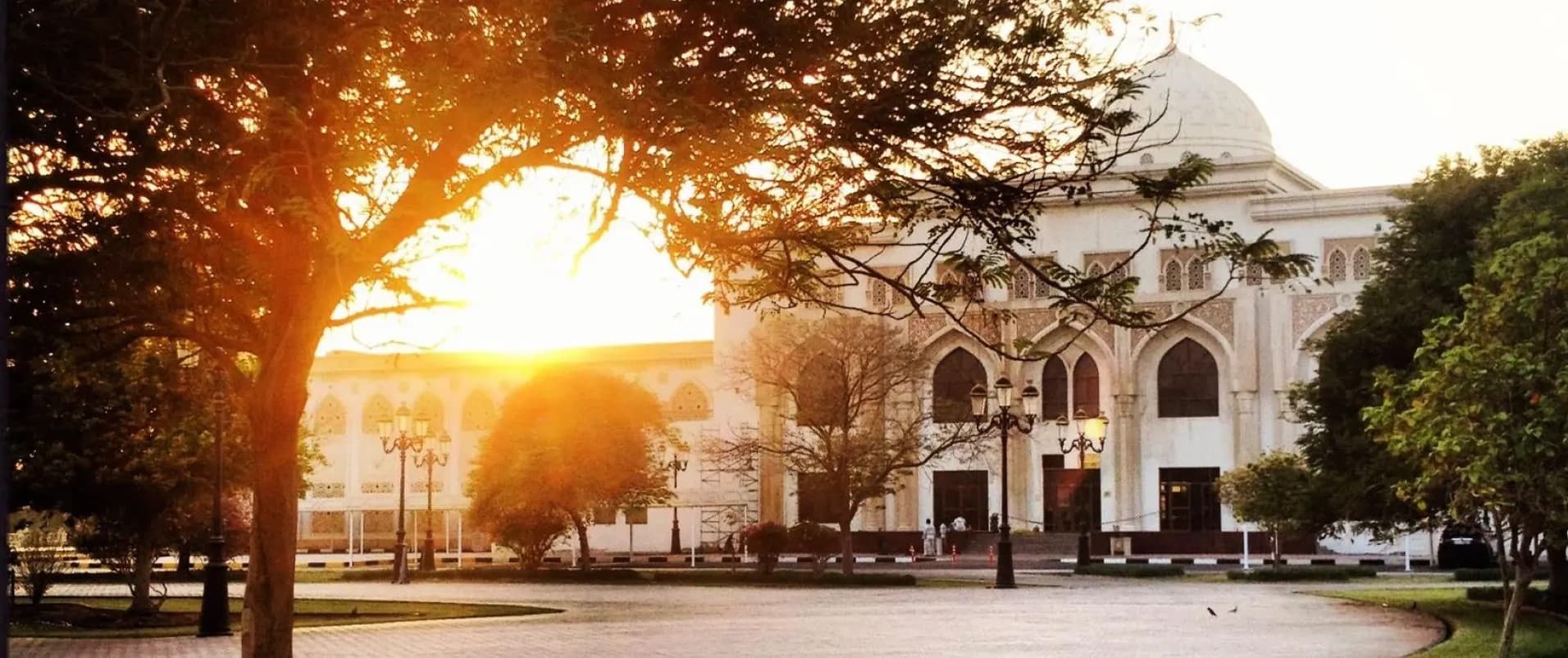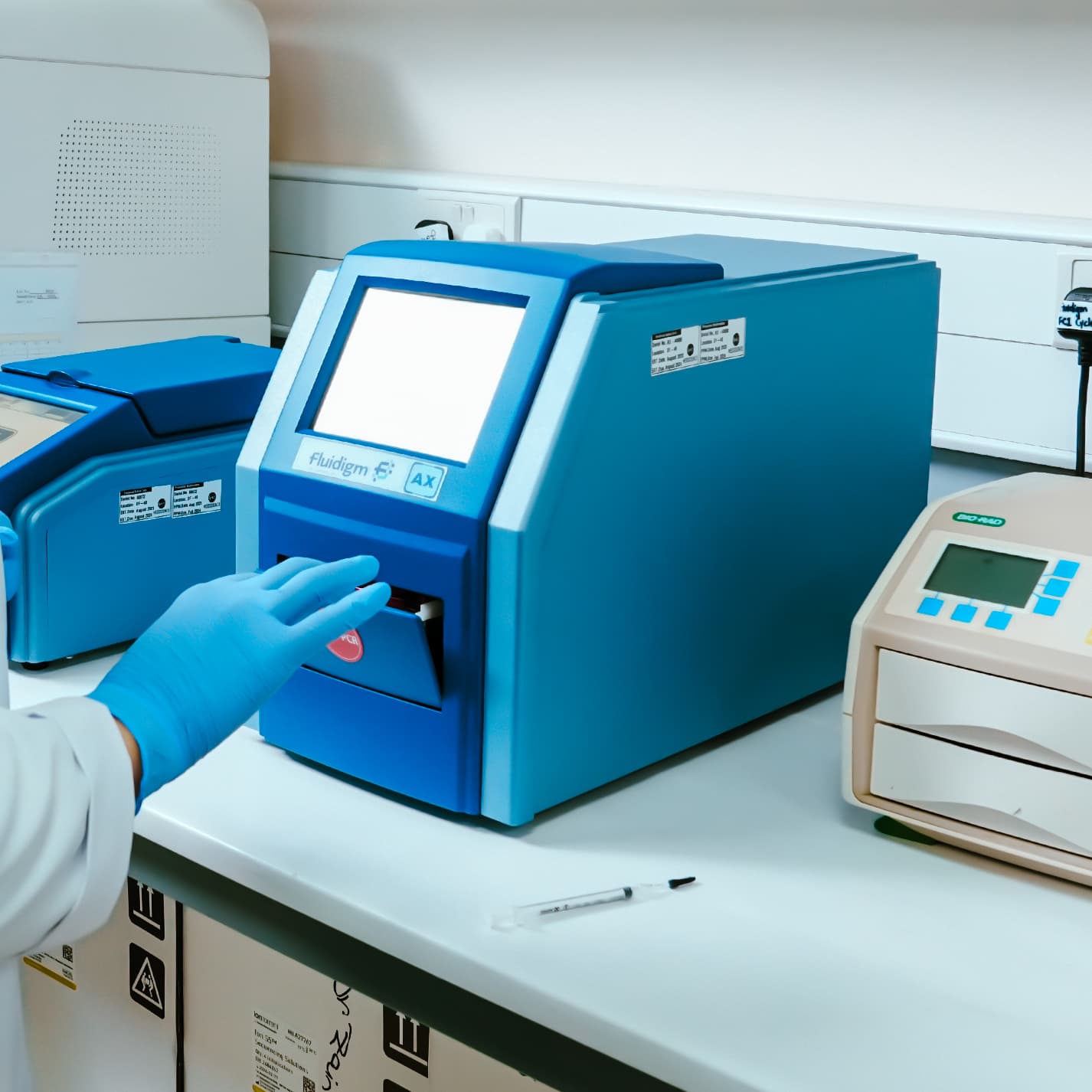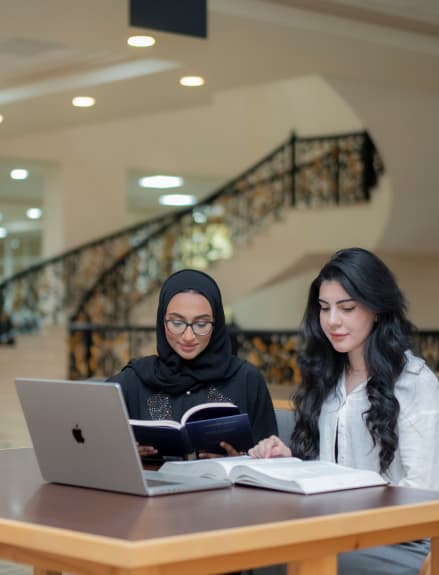

Research Institute of Sciences and Engineering
Research Highlights
Research Stories
Research Publications
Research Groups and Centers
Research Centers
Research Groups
Research Centers
Water and Environment Conservation Research Center (WAEC)
The Water and Environment Conservation Research Center (WECRC) is dedicated to advancing research and development in water conservation and environmental protection. The center works towards creating sustainable solutions that address global water challenges and contribute to the long-term well-being of ecosystems and communities.
Research Groups
Aviation Center of Excellence
The Aviation Center of Excellence (ACoE) was established at the University of Sharjah (UoS) in 2019 in collaboration with the General Civil Aviation Authority (GCAA), which is the regulatory body responsible for overseeing and regulating all aviation-related activities in the UAE. It falls under the GCAA Professorship Chair Strategy since June 2022, which was signed between UoS & GCAA, by GCAA’s Director General, H.E. Saif Muhammad Al Suwaidi, and the previous university Chancellor, Hamid Al Naimiy, in the esteemed presence of His Highness Sheikh Sultan bin Ahmed Al Qasimi, Deputy Ruler of the Emirate of Sharjah and President of the University of Sharjah.
The center is dedicated to developing innovative open-source solutions in the aviation industry as well as making contributions to the field through research publications. It focuses on a wide range of research directions, including Robotic Process Automation (RPA), Artificial Intelligence (AI), Drones Forensics and Security, UAV Systems R&D as well as other Research in Aviation, while constantly exploring newer research directions to keep up with technological advancements and their beneficial contributions to the aviation field.
The ACoE is equipped with state-of-the-art technology and a skilled workforce. It has actively engaged both graduate and undergraduate students, fostering a robust research environment. Furthermore, the ACoE has established and nurtured connections and collaborations with various industrial and educational entities across the UAE and internationally.
The ACoE collaborates closely with the OpenUAE R&D Group at the University of Sharjah, under the leadership of Dr. Manar and Prof. Qassim. We share researchers, resources, and funding across various projects.
Advanced Magnetic Materials Research Group
Magnetic materials offer a plethora of functional properties that are not only of fundamental interest but are essential for the development of new technological applications. The aim of the group is to build a strong experimental research environment dedicated to the investigation of the electronic properties of a broad range of magnetic materials and phenomena. The research line will develop experimental and theoretical knowledge on magnetic materials in particular when placed under extreme conditions such as high pressures, low temperatures and high magnetic fields. A special interest will be given to material relevant to energy applications.
Desalination Water Treatment Research Group
Desalination Research Group (DRG) is a new launched group under Research Institute of Science and Engineering (RISE) at University of Sharjah that is focusing on enhancing the sustainability of water resources in UAE by providing scientific and technological solutions for energy-efficient water desalination.
Environmental and Chemical Biology Research Group
The mission of the Environmental and Chemical Biology (ECB) group is to explore and produce a novel understanding of desert ecosystem biodiversity, plant biological and physiological processes, demonstrate the significance of native plants and their role in combating desertification, the economic importance of medicinal plants and ecological complexity of desert ecosystems to the scientific community and public. The mission is also extended to assist people and institutions in their effort to promote biodiversity conservation, enhance the efficient and sustainable uses of natural resources, and protect environmental values and cultures.
Environmental Resources Conservation and Protection Research Group
The aim of the group is to undertake fundamental and applied research to advance Environmental Resources Conservation & Protection, with special focus on the UAE. The research interests of the group lie in the broad areas of monitoring, conservation, and management of environmental resources through water and wastewater treatment and reuse, resource recovery from waste materials, as well as assessment and mitigation of the pollution impacts on the environment. The interests also cover human health and environmental risk assessment, air quality monitoring and assessment, hazard mapping, climate change mitigation, and application of satellite and information technologies.
High Energy Physics Research Group
For many decades particle physicists have been trying to answer many open questions about several sticking phenomena that are persisting below the Fermi scale. Everything in Nature is governed by four fundamental interactions: Gravity, Electromagnetic (EM), Strong and Weak forces. The universe is made from basic building blocks called elementary particles, controlled by these four fundamental forces. Our best understanding on how these elementary particles behave is governed in the Standard Model (SM) framework of particle physics. The SM was developed back in the early 1970s. So far, it is extremely successful in explaining most of the measurements in particle physics at high energies that are accessible today. .
A major goal of the particle physics program at the high energy frontiers, is to investigate the nature of the electroweak symmetry breaking. Since the 4th of July 2012 one of the important ingredients of the SM theory, the Higgs boson, became visible in the ATLAS and CMS detectors at CERN's Large Hadron Collider (LHC).
However, even though after the Higgs discovery, several fundamental questions remain unsolved. Therefore, physics beyond the standard model is explored to shed more light on these unexplained puzzles (Neutrino masses, Dark Matter (DM) nature, Matter-Anti Matter Asymmetry in the universe, the origin of the Baryon Asymmetry of the Universe (BAU)). To tackle these open problems, various experimental searches of well motivated theoretical models beyond the SM have been investigated.
Information and Network Security Research Group
The center carries research in information security to help governmental organizations and local institutions to protect their information infrastructure from cyber attacks. More specifically, the center will work with organizations to identify threats.
Integrated Water Processing Technologies Research Group
The Integrated Water Processing Technologies research group focuses on advancing sustainable and efficient solutions for water treatment, desalination, recycling, and resource recovery. The group combines expertise in chemical engineering, environmental science, and process optimization to address pressing global water challenges. Key research areas include the development of innovative separation technologies such as filtration and membrane technologies, adsorption, advanced oxidation processes, and desalination methods that minimize energy consumption and environmental impact. Through interdisciplinary collaboration and cutting-edge technology, the group aims to integrate and optimize the existing technologies that will lead to improvement of water quality and accessibility, supporting environmental sustainability and public health.
Modeling, Analysis & Simulation of Some Evolutionary Phenomena Research Group
Modeling, Analysis, and Simulation of Some Evolutionary Phenomena (MASE) Research Group is aimed to provide an umbrella for infrastructure research in the Department of Mathematics at the University of Sharjah. Many fundamental phenomena can be described by evolutionary equations such as partial differential equations deterministic or stochastic models
The main topics of the research group will be: mathematical models of such evolutionary phenomena linear and nonlinear cases Modeling, Analysis, and Simulation of Some Evolutionary Phenomena focuses on the analytical theory of such equations (existence, uniqueness, qualitative behavior) and on the development and implementation of some new algorithms and their numerical analysis. Computational Mathematical Chemistry, coding theory of finite rings and groups. Recent tools in the functional analysis as well as in numerical analysis will be used to have the existence, uniqueness of the solutions (if any) and the validation by implementing new algorithms will be utilized.
Materials for Energy Applications
Materials for Energy Applications research line aims to develop high-performing structural and functional materials for efficient, reliable, and cost-effective photo(electro)chemical energy conversion and energy storage devices. The members of this research line are also focused on multi-scale simulation and modeling including in situ characterization techniques for investigating characteristics of various advanced materials for energy storage and conversion devices. The goal at the end is to perform advanced research to resolve vital issues relevant to sustainable intends in the energy field.
Materials for Environmental Applications Research Group
The aim of the Materials for environmental and biological applications research line is to develop innovative materials for environmental applications that can contribute to sustainability and environmental protection. We strive to conduct cutting-edge research that addresses current environmental challenges and provides solutions that are practical, efficient, and cost-effective. We aim to develop a wide range of materials that can be used for various environmental applications, such as water and air purification, waste management, public health safety monitoring and protection, and renewable energy production.
Organometallics Chemistry Research Group
The Organometallics research line aims at tackling problems arising from fundamental and applied concepts. The prototypes resulting from laboratory research in environmental, energy, forensic science, and medical nanoengineering can be commercialized. The concepts and prospects have directly benefited in developing technologies for latent fingerprints, drug delivery, solar cells, sensors, energy storage and conversion devices. The outcome is evident from a significant increase in the number of high-quality publications and featured journal covers from the group. The investigations on the elegant organometallic gold nanoparticles have catalyzed the growing field of nanotechnology and its wide applications. The research line extends to design and investigate catalytically relevant MOFs for green hydrogen generation, complexes mediating challenging bond-forming reactions and perovskites solar cells for efficient photon to current conversion.
Open UAE Research and Development Research Group
The OpenUAE Research & Development Group spearheads cutting-edge research initiatives to drive the successful adoption of Open-Source Software (OSS) across the nation. With a strategic focus on OSS, Security, Blockchain, the Internet of Things (IoT), Artificial Intelligence (AI), Robotic Process Automation (RPA), Large Language Models (LLMs), Quantum Computing, and Autonomous AI Agents, the group remains at the forefront of technological innovation. In addition to research, it designs advanced solutions and delivers specialized training and consultancy services to empower both the public and private sectors. This forward-thinking initiative is closely aligned with the University of Sharjah’s mission and supports the ambitious vision set forth by the UAE’s "We the UAE 2031" national agenda.
Pure and Applied Chemistry Research Group
We are working on the development of innovative and practical electrochemical sensing and energy storage solutions. To this end, we are developing a wide range of electrodes based on different types of materials including carbon-based, metal, metal oxide, and organic materials. We are also controlling the size and shape of our materials for optimal performance, typically using nanomaterials with special morphologies such as sheets and tubes. We are mainly focused on electrochemical sensing of small molecules and heavy metals on the sensing side and high-performance supercapacitors on the energy storage side. We aim to be a pioneer in high-end, economic, and scalable electrochemical solutions for different applications.
Planetary Sciences Research Group
The Planetary Sciences Research Group at the University of Sharjah, in partnership with the Sharjah Academy for Astronomy, Space Sciences, and Technology (SAASST), is committed to advancing research and education in planetary and solar sciences. The group supports the University's MSc in Astronomy and Space Sciences by providing high-quality observational resources and fostering cutting-edge research in planetary systems and solar phenomena. It plays a key role in guiding graduate students toward specialized research in planetary sciences and contributes to academic excellence through collaborative projects, publications, and scientific engagement. The group also promotes public awareness and science education by organizing seminars, workshops, and outreach activities for students, educators, and the wider community.
Quantum Information Simulation and Processing Research Group
The research group's interest will tackle the main subjects of quantum information and simulations namely:
Investigating quantum correlations in open quantum system which are crucial keys for the quantum processing.
Quantum algorithm
Quantum communication, quantum error correction, quantum cryptography and quantum teleportation
Quantum processing and applications.
One of the group's main goals is to train the next generation of scientists inside the UAE to be able to follow the future quantum digital revolution.
Renewable Energy and Energy Efficiency Research Group
The Renewable Energy and Energy Efficiency Research Line is aiming to promote advanced and innovative research in the field of Sustainable and Renewable Energy, Energy Efficiency, Renewable and Alternative Fuels, Energy Monitoring, Energy Control and Management, Energy Systems Modeling and Simulation, Sustainability, Energy Planning and Climate Change Mitigation, Materials for Renewable and Sustainable Energy Systems, Energy-Water Nexus, and Waste to Energy Conversion. The Sustainable Energy research group (SEDRG) will serve as a platform for collaborative research efforts fostering the interaction between academia, industry, and governmental agencies in the field of energy. The goal at the end is to relate all these research efforts to solve global real-life dilemmas in the energy field.
Sustainable Civil Infrastructure Systems Research Group
The Sustainable Civil Infrastructure systems research group (SCIS RG) was established in 2015 where research lines in the area of Construction Management, Water Resources Engineering, Transportation, Pavement, and Geotechnical engineering applications in Civil Engineering with a focus on sustainable development. The SCIS-RG played also a role in serving the community by organizing educational seminars and conferences in addition to conducting research. These research studies are aimed at serving the needs of the local and regional community. For instance, the faculty members succeeded in launching several external research with vital agencies in the UAE, such as Sharjah Electricity, Water, and Gas Authority, Ministry of Energy and Infrastructure Development, and Mohammed Bin Rashed Space Center. Overall, the SCIS-RG has published much research in high-quality international journals and conferences in different domains.
The vision of the group is to lead research on developing smart, sustainable, and resilient systems, technologies, and infrastructure to promote sustainable development, protect the environment, and combat climate change in service to the community. The research group will also 1) develop strategic partnerships and exchange programs with leading government, business, industry, and academic organizations locally and internationally. 2) Engaging in research and development activities aligned with the strategic plans of Sharjah, UAE, and the Region. 3) Training graduate & undergraduate students, research assistants, and post-doctoral fellows.
Sustainable Construction Materials and Structural Systems Research Group
The Sustainable Construction Materials and Structural Systems (SCMASS) group at the University of Sharjah, Department of Civil and Environmental Engineering, is a focused group composed of accomplished faculty members with research interests in the area of sustainable and novel construction materials and structural systems. The group is committed to undertaking impactful research for the benefit of the local and international community.
Sustainable Engineering Asset Management Research Group
The fast-growing and changing economy of UAE and the region leads to a rapid expansion of industries and infrastructures that emphasize achieving competitive advantage and sustainable business outcomes that rely on a good economy without compromising safety, environmental and social issues.
Smart Grid and Power Systems Research Group
This research group was approved in Nov. 2019. Since that time, all its group members become involved in several research topics (as will be listed later in this form). In brief, the research topics covered by the group members include theoretical and experimental analyses for several subjects related to the smart grid, microgrid, and distributed generation systems. In addition, the group members have the intention to build prototypes for some systems related to the microgrid and distributed generation systems. These prototypes are utilized to conduct research in the topics included in the members' activities such as operation, control, protection, parameters estimation, and optimization for smart grid and microgrid.
Smart Sustainable Cities Research Group
Nowadays, cities worldwide are becoming larger, connected and more innovative as they undergo rapid growth, population increases and witnessing the fourth industrial revolution.
Industry 4.0 is marked by several breakthroughs in advanced technologies such as artificial intelligence (AI), Cyber technology, Robotics, Internet of Things (IoT) and 5G. On the other hand, Climate change, population growth, transportation, international security issues, and globalization are the main challenges for future urban development and smart cities. Therefore, the right assembly of emerging technologies, components, skills, and needs can deliver smart/future city objectives. Examples of these objectives are developing technologies for smart mobility, smart transportation systems, digital connected health framework, smart infrastructure, sustainability and facilitating planning.
Smart sustainable cities is an interdisciplinary area concerned with the development of innovative technologies for innovative cities that use information and communication technologies (ICTs) and other means to improve quality of life, efficiency of urban operation and services, and competitiveness, while ensuring that it meets the needs of present and future generations with respect to economic, social and environmental aspects.
The proposed research group brings together high-profile researchers from different Colleges and departments at UoS, Qatar University and Harokopio University of Athens to conduct advanced interdisciplinary research addressing problems in the areas of computational intelligence, IoT, cyber security, smart mobility and transportation systems and sustainable smart urban design for smart cities applications.
Research Focus Areas

Cancer

Biotechnology

Chemistry

Engineering

Mathematics

Modeling

Genetics

Physics

Robotics

Technology

Water treatment
World-Class Researchers and Resources
Prev
Next

General Enquiry
Seeking more information? Our dedicated team is ready to address your queries. Connect with us through our general inquiry channels for prompt and insightful assistance.


